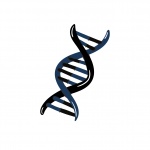

















In order to start a career in Microbiology, students must choose PCB (Physics, Chemistry and Biology) stream in Class 12. The students must score at least 50% marks in Class 12 to take up higher level education in the field of microbiology. It is an introductory course in microbiology for students and often forms the base for a specialized masters.
For admission to PG courses, it is necessary to hold a bachelors degree (B.Sc.) in the related field. Some universities organize their own entrance exams for screening candidates for admissions. Candidates can appear in NEET PG, AIIMS PG and JIPMER PG for microbiology courses.
1. St. Xavier’s College, Mumbai 2. Madras Christian College, Chennai 3. The Oxford College of Science, Bangalore 4. Fergusson College, Pune 5. Mount Carmel College, Bangalore 6. St. Xavier’s College, Kolkata 7. Gargi College, New Delhi
A day-in-the-life for a microbiologist can be very different depending on what type of science they perform, but they all do certain things. Microbiologists spend a great deal of time preparing their samples every day, whether their samples are from people or ponds or petroleum companies. After their samples are meticulously checked, a microbiologist can then begin performing different activities on whichever organism or process that they are studying. These activities can involve growing and experimenting on the samples, analyzing their makeup or behavior, or optimizing them for some task. The most recognizable tool of a microbiologist is the microscope, which enables them to take a close look at the tiny things they study, but they also use many other technologies in their line of work. They use special equipment to grow their microbes, as well as specific ingredients to create the growing medium that allows their samples to grow and reproduce in the lab. Microbiologists in certain fields use a wide array of gadgets and machines for analyzing their samples, such as nuclear magnetic resonance, electrophoresis, centrifuges, spectrographs just to name a few. Many microbiologists work in hospitals or clinical laboratories, analyzing the samples that are collected on patients or the local population. Medical microbiologists are specially trained to identify the harmful pathogenic microbes that attack the body. They culture and examine many different types of samples, including many bodily fluids and tissues, and report their very important results, in order to assist the nurses and doctors and myriad other personnel who assist in patient care.